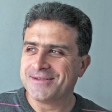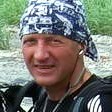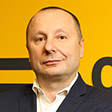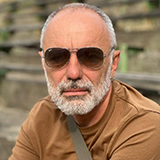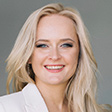Vladimir Putin: the path from KGB officer to war criminal. Part 1
Russian President Vladimir Putin will take a prominent place among the bloody dictators of our time, alongside Vladimir Lenin, Joseph Stalin, Adolf Hitler, Pol Pot, and Saddam Hussein. Even today, Vladimir Putin is wanted by the International Criminal Court in The Hague. This international institution has issued an arrest warrant for the Russian dictator for the illegal deportation of children from the Russian-occupied territories of Ukraine.
The KGB-FSS (Russian Federal Security Service) system and Russian politicians
Russian special services have always controlled the party leaders and politicians of this country. This is part of the work of the KGB-FSS system. The Russian secret service attached its representative, KGB officer Alexander Korzhakov, to the leader of the conditional democrats and future president of the Russian Federation, Boris Yeltsin. The Russian secret service recognized the potential of the future Russian president long before his "finest hour" and provided him with a bodyguard from among the most trained KGB officers. After all, Alexander Korzhakov had been well trained by the system – he guarded the pro-Moscow puppet ruler of Afghanistan, Babrak Karmal, whom Moscow brought to power in Kabul, having previously done away with the then president of Afghanistan, Hafizullah Amin. Let me remind you that Amin was killed by KGB special forces during the storming of the Taj Bek presidential palace in December 1979. This special operation to overthrow the then current government in Afghanistan was carried out by the elite special forces of the KGB and GRU of the USSR – Zenit and Thunder. And as a result of the pro-Soviet coup, the top political leadership in Moscow decided to create another elite unit to carry out similar influence operations abroad – the KGB special task force "Vympel". Its tasks included, among other things, special operations, assassinations and sabotage on the territory of other countries. This elite KGB group was created by a closed resolution of the Central Committee of the Communist Party and the Cabinet of Ministers. It is known that orders to conduct special operations were given personally by the head of the KGB after approval by the General Secretary of the CPSU. At that time, the head of the KGB was Vladimir Andropov. And the future bodyguard of the future Russian president Boris Yeltsin, Alexander Korzhakov, after returning from Afghanistan, was enrolled in the personal security of KGB chief Andropov. This proves that the Russian secret service system has attracted one of its most qualified employees to the inner circle of the future president. And this circle of the Russian politician, who was gaining momentum in the Russian government, was not limited to working hours. The task of the Russian secret services was to penetrate the politician's daily life, his family affairs, and household issues. Ultimately, a KGB-FSS agent was supposed to be more than just a friend who was there for you 24 hours a day. He had to become a family member. Experienced intelligence officers often managed to do this. They first became reliable bodyguards, assistants, and secretaries, and then friends and family members of leaders of various ranks, party functionaries, and top politicians.
St. Petersburg, 90s. Sobchak and Putin.
While in Moscow Boris Yeltsin was running at full speed to power, using as a springboard a real lucky chance for him – the attempted anti-state coup of August 18-21, 1991, called the State Emergency Committee, organized by failed Soviet politicians led by the first and last vice-president of the USSR Yanayev and then KGB chief Kryuchkov, in Russia's "second capital" the one who was considered a reformer and democrat – the first democratically elected mayor of St. Petersburg Anatoly Sobchak – was heading for the peak of his popularity. At the same time, a young KGB-FSS officer, Vladimir Putin, appeared in the environment of the "promising" politician. By the way, at the same time, a young Dmitry Medvedev started working in Sobchak's team. This is how the Putin-Medvedev tandem was formed.
The future Russian dictator follows all the guidelines developed in Lubyanka (where the FSS headquarters is located) for working with politicians. A young, inconspicuous, pale and inexpressive intelligence officer, Vladimir Putin looks ridiculous in photos from those years in oversized jackets and tracksuits in the style of the then popular Russian TV series Banditsky Peterburg. But Vladimir Putin did not just carry Sobchak's briefcase with working documents. He became a real FSS "watchdog" for the "democrat" mayor, a part of Anatoly Sobchak's life, both at work and outside of it, during leisure and informal meetings. The Finnish TV channel Yle published a video of Anatoly Sobachak and Vladimir Putin on vacation in Finland. During the game and at the table, the future Russian dictator is dressed in an oversized tracksuit, which was a typical dress code for the Russian mafia at the time.
Being close to the mayor of St. Petersburg, Anatoly Sobchak, the future Russian president, Vladimir Putin, was given access to implement corruption schemes. The head of the international relations department of the mayor's office of Russia's "second capital" Putin managed to scroll through without much resistance from law enforcement. The state of general disorder and economic catastrophe in Russia at the time facilitated the newly created schemes for enriching the political elite and deals for the sale of raw materials and oil products abroad.
The "shadow" of the mayor of St. Petersburg
In the early 90s, Russia's "second capital" was on the verge of bankruptcy and starvation. Grocery store shelves were empty. The city needed a "savior" who would "solve" the impending disaster. At that time, Vladimir Putin, the head of a department at the St. Petersburg City Hall, organized barter schemes to export strategic raw materials, including oil, rare earth metals, timber, and cotton abroad. In exchange for food. All of this was exported (written off) by trains and ships in volumes that confused even customs officers. Thus, in his letter to the St. Petersburg mayor's office, the then head of the St. Petersburg customs office, Stepanov, signaled that the documents issued by the mayor's official Putin "for the export of 750 thousand cubic meters of wood are greatly overstated and amount to the annual processing volume of the entire Leningrad forest port."
In other words, Putin and his comrades (who would later become his team in the highest echelons of power and well-known oligarchs) were "cutting down the forest" so that the grove was making noise. For hundreds of millions of dollars.
But the city never received the food. Where did these resources worth hundreds of millions of dollars go? Probably, they "drowned" in the pockets of the organizers of this barter scheme. This episode in the life of the future dictator of Russia was the subject of a documentary investigation by the director Valery Balayan in his film "Who is Mr. Putin?"
How Putin came to the top of the government. "Quiet coup" of special services in Russia.
It was carried out by the Russian special services at the end of 1999. When President Yeltsin, exhausted by alcohol and illness, introduced his successor. It was the former FSS director and then-prime minister Vladimir Putin. He needed to legitimize himself as the rightful leader of Russia in the next election. And that's when residential buildings began to blow up in Russia.
Blowing up houses in Russia
Meanwhile, in Russia itself, FSS agents resumed their usual methods of working with their own people, using terror, fear and intimidation. The bombing of residential buildings in Russia on the eve of the presidential campaign, with which Putin completed the process of revenge seizure of power in Russia, was supposed to restore the instinctive desire of Russians for a "strong hand", to make it "like in Stalin's time". And it worked.
The Russian authorities then attributed the bombings to the "Chechen trail." Without any hard evidence, just like in the recent story of the drones over the Kremlin, when, without trial, without showing the wreckage or even the appearance of a "process," Ukraine was immediately accused of everything, and Russian high-ranking Nazis Dmitry Medvedev and Dmitry Rogozin called for the assassination of President Zelensky and the use of tactical nuclear weapons against Ukraine. The methods of Russian FSS agents, it should be noted, remain unchanged.
But let's get back to the "Chechen trail". This was the reason for a new attack on the Chechen Republic of Ichkeria, which went down in history as the "second Chechen war." It is worth recalling that Yuri Felshtinsky, the author of the book "The FSS is Blowing Up Russia," which collected evidence and documents about the involvement of Russian special services in the bombing of houses, was forced to flee to the United States to save his life, and former FSS officer Alexander Litvinenko was finally found and poisoned with radioactive polonium in London. At the same time, Litvinenko's killer (according to the conclusions of and the ECHR verdict), Russian security officer and former KGB agent Andrei Lugovoi, who acted as a Russian agent in Britain, became a senator of the Russian State Duma and, of course, is beyond the reach of British justice.
After all, "Russia does not surrender its own". As you know, the High Court in London found Russian President Vladimir Putin and then-FSS chief Nikolai Patrushev involved in the murder of Oleksandr Lytvynenko. The same Patrushev who is now the head of the Russian Security Council and is one of the Russian leaders who initiated and prepared the invasion of Ukraine.
To be continued
Блог автора – матеріал, який відображає винятково точку зору автора. Текст блогу не претендує на об'єктивність та всебічність висвітлення теми, яка у ньому піднімається. Редакція "Української правди" не відповідає за достовірність та тлумачення наведеної інформації і виконує винятково роль носія. Точка зору редакції УП може не збігатися з точкою зору автора блогу.

